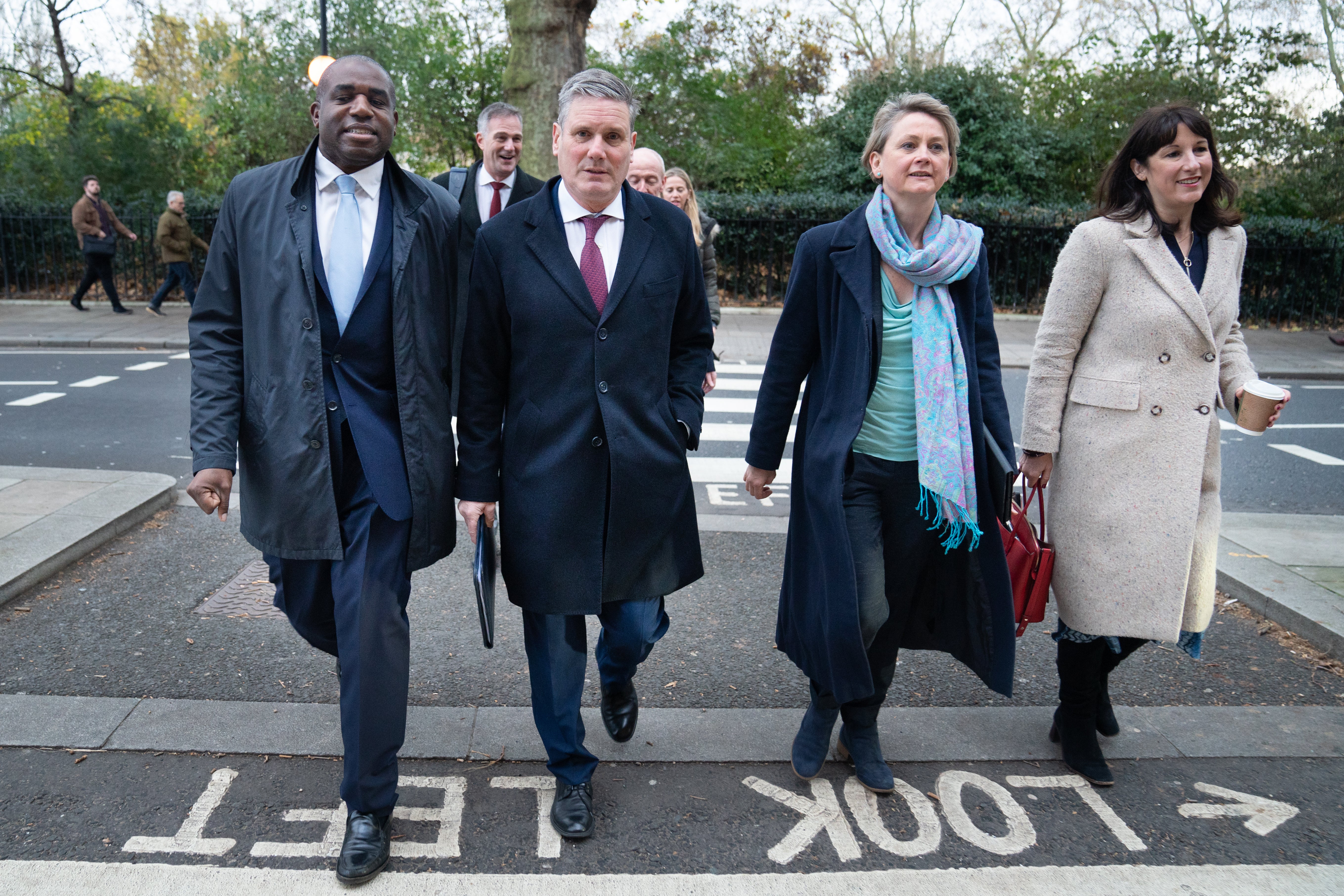Keir Starmer has launched his own ‘prawn cocktail offensive’ – and it will pay off
The Labour reshuffle is a massive step forward in building credibility with the business and financial communities, writes Hamish McRae


There is, as the new shadow home secretary Yvette Cooper tweeted, “much to do”. She was referring to the need to buck up the performance of the Home Office, as discussed by my colleague John Rentoul. But there is a broader point, which is that her appointment is a massive step forward in building the credibility with the business and financial communities of a potential future Labour government. The posts within the shadow cabinet matter less than the impression of overall competence.
Sir Keir Starmer has set off on a similar journey to that taken by John Smith, the shadow chancellor and later Labour opposition leader, who sadly died in 1994 from a heart attack. Smith’s effort to assuage the concerns that a Labour government would be anti-business, involved joining with Mo Mowlam, later a cabinet minister under Tony Blair, on a round of lunches with City and business leaders. It was mocked as the “prawn cocktail offensive” by Michael Heseltine. But it worked. It showed that he would be a solid and sensible chancellor (I should acknowledge to being a great admirer). In the event, it was Tony Blair and Gordon Brown who benefited from his groundwork.
Labour now has Rachel Reeves in post as shadow chancellor, and the Leeds West MP is well-regarded. But the mountain Labour has to climb is such that it will need more shadow cabinet members who are comfortable in the world of finance. Having Jonathan Reynolds as shadow business secretary is fine as far as it doesn’t move the dial. Adding Yvette Cooper on the other hand clearly does. Persuading Ed Balls, the architect of much of the Blair/Brown government’s economic success, to come back into politics would really swing it.
But step back from politics and ask what the business and financial communities really want. They are, for a start, quite different. Business is different from finance, and big companies totally different from small and medium-sized enterprises.
Finance is global – everyone knows that. But what many people miss is that it is also apolitical. There is no sentiment. It will place money wherever it thinks will bring the greatest returns. If the UK is a good platform for making money then it comes here. If investing in environmentally-sustainable projects are likely to be profitable, they will get the money. That is the rationale behind the Cop26 initiative led by Michael Bloomberg, the American businessman and philanthropist, and Mark Carney, the former governor of the Bank of England.
Big money also craves predictability. It wants that from central banks – look at the commotion caused by the Bank of England earlier this month when it appeared to signal that it would increase rates then failed to do so. And it wants it from governments. So if the shadow cabinet can assure that they will be orderly in their tax and regulation policies, then financial firms will welcome that. One of the problems financial service companies have at the moment is the unpredictability of tax policy from this government. As for regulation, a principles-based approach would be much welcomed over a narrower rules-based one. But progress is slow. Meanwhile there are many points a thoughtful opposition can score.
Big business also wants predictability, but it also likes (though it would not quite say that) regulation. As a general rule, big companies like regulation because it keeps out competition. A small company cannot afford to hire the people to help it find its way though the paperwork. Big ones can. This presents Labour with both a threat and an opportunity. Of course there has to be regulation of working practices, treatment of employees and so on. The threat to Labour is that they listen to these large employer organisations because they have the money to be effective lobbying institutions, but in doing so find they are acting against the interests of smaller businesses.
To keep up to speed with all the latest opinions and comment sign up to our free weekly Voices newsletter by clicking here
Starmer’s speech to the Confederation of British Industry (CBI) earlier this month went down extremely well. It was welcomed by Lord Bilimoria, its president. He said it was “hugely encouraging to see a Labour leader ready to seize the initiative on the UK’s productivity puzzle, reform burdensome business rates and back Britain’s workforce with the skills investment needed to make a success of today – as well as tomorrow”.
The response of the Federation of Small Businesses (FSB) to the rates relief plan proposed by Labour shows that this idea has also been very well received. But viewed more generally, the evidence that the party is able to gather support from small business owners is more nuanced. A paper by History & Policy, a group of academics who seek to give perspective to current policy issues, pointed out four years ago how Labour’s relationship with small business was, as it put it, “contested”. There is still a slog ahead.
But let’s welcome the progress Labour is making. See this reshuffle as a step forward. No government, or indeed opposition, should be in the palm of the financial and business lobbies. They should be on the side of consumers as much as producers, arguably more so. But dealing with an unfortunate legacy will take time. There is much to do.



Join our commenting forum
Join thought-provoking conversations, follow other Independent readers and see their replies
Comments